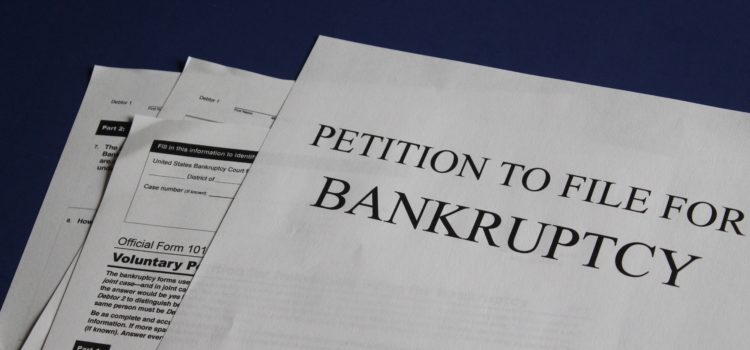

This article is an excerpt from the Shortform book guide to "You Can Be a Stock Market Genius" by Joel Greenblatt. Shortform has the world's best summaries and analyses of books you should be reading.
Like this article? Sign up for a free trial here.
What are orphan shares? How can you make a profit when a company goes bankrupt?
Orphan shares are new stocks emerging from a company’s bankruptcy proceedings. Typically, these shares are owned by creditors who have a strong incentive to sell.
Learn more about what orphan equities are and how they can turn a profit with these tips from hedge fund manager Joel Greenblatt.
How to Profit From Orphan Shares
In You Can Be a Stock Market Genius, Joel Greenblatt explains that you can profit from so-called orphan shares—the new stock of companies that emerge from Chapter 11 bankruptcy proceedings. He maintains that orphan shares can be lucrative investments because their initial owners are former creditors with incentive to sell.
Greenblatt first clarifies that when a company survives bankruptcy proceedings, new shares of its stock are issued and distributed to the company’s former creditors—those who hold the debt that the company can’t repay. For example, if Netflix were billions of dollars in debt to banks and declared bankruptcy, then these banks would be compensated with newly issued Netflix stock if Netflix survived bankruptcy—after all, if Netflix were bankrupt, it wouldn’t be able to pay the banks back in cash.
(Shortform note: Although Greenblatt focuses on orphan shares that arise in the wake of bankruptcy proceedings, “orphan equity” is normally a catch-all term for any stock that nobody wants to own. For example, when investors quickly sell stock in spinoff companies, this stock is likewise considered an orphan equity. Further, when one company purchases another using its own shares as currency, these shares can become orphan equities if their new shareholders quickly dispose of them.)
Thus, much like in the aftermath of spinoffs, many of the company’s new shareholders will own stock that they didn’t choose to purchase. As Greenblatt relates, many of these creditors care only to recoup their losses. Thus, orphan shares often trade at bargain prices since many of their former shareholders are interested in selling quickly. Greenblatt even points out that, according to a 1996 study, orphan shares historically outperformed market indices by about 20% over their first 200 days on the market.
(Shortform note: In a 2015 study, researchers found that orphan shares between 2000 and 2010 didn’t deliver the same magnitude of returns as in the 1996 study cited by Greenblatt. On the contrary, they found that orphan equities’ median return during the first 200 days was 0%. Compared to the S&P 500’s—which, between 2000 and 2010, had average returns of about -1% annually—this median return represents a slight overperformance, but not the 20% that Greenblatt cites.)
Finding the Best Orphan Shares
Greenblatt recognizes, however, that stock in recently bankrupt companies is often deservedly low—these companies went bankrupt, after all. So, to distinguish between fairly priced orphan shares that are unpromising investments and genuinely underpriced orphan equities, he endorses Warren Buffett’s advice: Look for companies with sound underlying business models.
In practice, this advice means looking for companies that went bankrupt because of short-term mistakes rather than underlying business defects. Specifically, Greenblatt recommends favoring companies that went bankrupt because they took on too much debt and couldn’t pay it off. Such companies, he argues, often go bankrupt because of a single mistake—for example, overpaying for an acquisition, or not growing fast enough to repay their debt—rather than a systemic business flaw.
| How Warren Buffett Evaluates a Company’s Business Model Greenblatt takes a negative approach to evaluating business models: He seeks out companies that didn’t go bankrupt because of an underlying business flaw. By contrast, Buffett takes a positive approach, considering three criteria when gauging a company’s business model. In The Warren Buffett Way, Hagstrom outlines these three criteria: 1. Simplicity: Buffett prefers companies with simple business models that he understands since it’s easier to make informed investing decisions when you understand a company. 2. Predictability: Buffett prefers companies that have had consistent business models because such companies are less likely to venture into unknown territory and make costly mistakes. 3. Competitive advantage: Buffett prefers companies that have a sustainable edge over the competition since you can trust these companies to continue exploiting that edge in the future. So it stands to reason that you should prefer orphan equities whose companies are simple, predictable, and have a competitive advantage. Because companies that exemplify all three likely won’t go bankrupt, however, you may have to compromise on at least one of these criteria. |

———End of Preview———
Like what you just read? Read the rest of the world's best book summary and analysis of Joel Greenblatt's "You Can Be a Stock Market Genius" at Shortform.
Here's what you'll find in our full You Can Be a Stock Market Genius summary:
- How amateur investors can earn above-market returns
- Why special-situation investing can outperform most investing funds
- When you should invest in "new" companies






